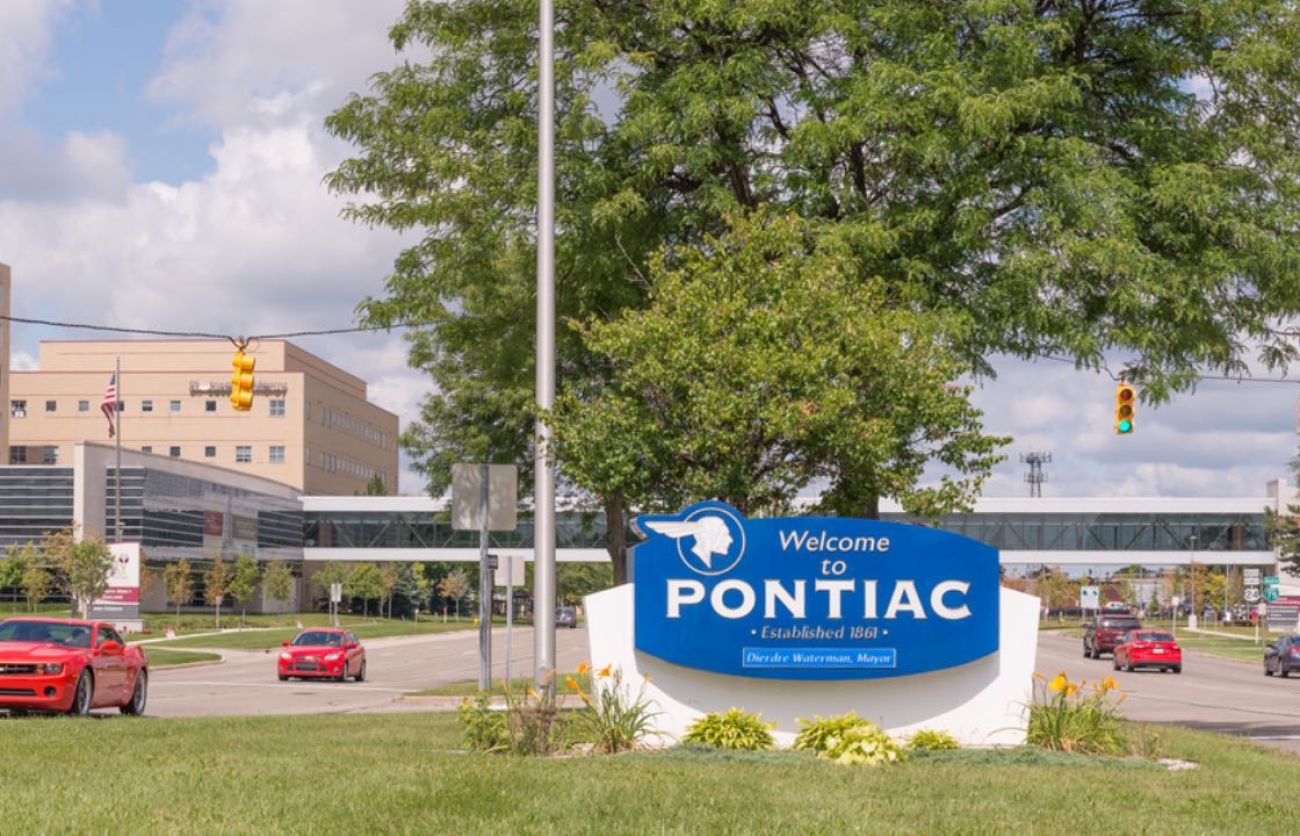Pontiac thought it could handle marijuana. It’s caused confusion and delays.

PONTIAC – Michigan’s first recreational marijuana retail sales begin Dec. 1, but hopes of flourishing jobs and taxes from medical weed remain a distant promise in Pontiac.
Last year, some claimed medical marijuana would be a panacea to long-suffering Pontiac, the Oakland County suburb where more than 1 in 3 residents are impoverished. By just 1 vote, residents approved a ballot measure in August 2018 to allow up to 20 medical shops to open in the city.
Licensing was to start within 60 days. Fifteen months later, it’s been delayed six times because of political squabbling among elected officials who opposed the measure.
Now, applications for licenses are set to open Jan. 5 after city officials passed an ordinance last week. But the delays prompt fears that, by the time medical pot shops finally get up and running, recreational weed will be ubiquitous elsewhere in Michigan.
“It’s really sad for the people who work and live there that the city government can’t cooperate and do something good for the community,” said Stephanie Goodman, CEO of Bricks + Mortar Cannabis, a real estate firm that specializes in property zoned for marijuana-related business.
“Everything is a fight [and] it’s just disappointing. They could be a huge location for business, but there’s obviously a big disconnect between the [city] and the rest of the world.”
Related marijuana stories:
- Why easy access to recreational marijuana is taking so long in Michigan
- A year after pot became legal, Michigan still months away from legal sales
- Residents in these Michigan cities said yes to pot. Their leaders said no.
- What’s legal, and what isn’t, under Michigan recreational marijuana plan (slideshow)
- Michigan approves recreational marijuana. What you need to know
- Message from marijuana country: We love legal pot
Perhaps worse, the delays have contributed to a real-estate speculation surge in Pontiac that’s prompted investors waiting for licenses to sit on vacant properties, including those in an increasingly empty downtown.
Goodman said she has several clients paying $5,000 a month to lease space for prospective pot shops, while investor Tim Shepard said he’s spent well over $100,000 on mortgages and taxes for six empty buildings he hopes to use for marijuana businesses.
“The whole idea [with medical marijuana] was to bring foot traffic into downtown, new people and create something we haven't had in a while,” Shepard said.
“But what's happened now is we don't have anything down there to show because everything's tied up. Everybody's working toward that goal, [but] because it's taking so long, it's stalling out the progress of the city.”

The city’s saga could be a cautionary tale for other municipalities after voters last year approved a ballot measure to make Michigan the 10th state nationwide to legalize marijuana.
This month, Michigan’s Marijuana Regulatory Agency delivered the first five recreational pot licenses to businesses in Ann Arbor and Kalkaska, clearing the way for legal sales to anyone 21 or older.
The experience in Pontiac, though, also demonstrates that just because voters express their will, that doesn’t mean office-holders will carry it out.
Statewide, more than 1,400 communities – 80 percent of the state’s 1,773 cities, villages and townships -- have already “opted out” of the law and prohibited recreational marijuana businesses.
That includes city officials in Pontiac, which despite allowing medical marijuana, voted to bar recreational businesses.
Mayor Deirdre Waterman and city council president Kermit Williams did not respond to messages and emails seeking comment.
Late last week, Waterman issued a news release noting that the city has hired two specialists – accountant Sherman Taylor and attorney and former state Rep. Klint Kesto – to assist the city in the process.
While applications for retail businesses won’t start until January, Pontiac began accepting license applications last week for related businesses, such as growers, processors and transporters.
‘Prudence and paralysis’
More than 130 municipalities statewide have passed ordinances allowing for and regulating medical marijuana facilities since Michigan lawmakers approved commercial medical marijuana sales in 2016.The process has gone far smoother in those communities, said Goodman.
She noted that medical marijuana businesses are already open in Grand Rapids, after it passed an ordinance in July 2018 to allow up to 53 dispensaries and 83 other medical marijuana facilities.
“At some point you have to start. There is prudence and there is paralysis,” said Eric Foster, group director of strategy and business for the Southfield-based Cannabis Practice Group, which consults cities on marijuana business laws. It has no contracts with Pontiac.
“You want to be in a situation where the steps you are making to make sure you are putting a solid and legal process are clear but at a certain point you also have to implement the process while also being cognizant of your need to make modifications after you implement it."
The stakes could be huge in Pontiac, which is the county seat of Oakland County and seemingly immune to affluence that surrounds it.
Nearly 40 years ago, Pontiac bustled with auto plants and was known as the home of the Detroit Lions’ Silverdome. Since then, the city’s population has fallen by nearly a third to 59,000 as auto plants such as General Motors Corp.’s Pontiac East Assembly closed.
In 2009, financial problems caused the state to appoint an emergency manager for Pontiac, which emerged from state control three years ago after erasing $87 million in debt by privatizing or outsourcing most services.
Over the years, efforts to revive the city have come and gone.
When the Lions left Pontiac for Ford Field in Detroit in 2002, the Silverdome was hyped as one of the most valuable properties in Michigan. After sitting empty and rotting for years, Pontiac sold the stadium in 2009 for $583,000, a fraction of the $55 million it cost to build. (Online retailer Amazon now wants to use the site as a distribution hub.)
Likewise, then-Gov. Jennifer Granholm in 2009 promised a film studio would bring jobs and the film industry to Pontiac. Built on the site of a closed GM plant, the Michigan Motion Picture Studio was open just three years and required a $19 million bailout from taxpayers.
Medical marijuana could be the latest boost for the city, advocates say.
“The [economic] opportunity Pontiac has is significant,” said Jenn Zielinski of Dunaskiss Consulting and Development, which represents about 20 marijuana-related companies in Pontiac and nearly 100 statewide.
“It could be life-changing. It could drastically change the city and its economic opportunity. This is the only industry they’re going to get that’s going to be able to change Pontiac.”
Statewide, recreational and medical marijuana sales are expected to total nearly $1.5 billion and generate some $166 million annually in taxes.
Estimates about economic impact in Pontiac won’t be available until the city accepts applications in January, said City Clerk Garland Doyle, who is overseeing the process.

Business catalyst or ‘zombies’?
Instead, disagreements among officeholders have caused several delays, the most recent of which came this month after Doyle said planning officials were giving misinformation to applicants.
He’s tasked with assessing, evaluating and scoring all applicants over a period of 21 days after the applications are submitted. The top 20 applicants on a 130-point scale will receive permits for businesses. There will be five permits in four districts citywide.
But Doyle said a squabble with the city administration has prevented him from implementing the process. Until last week, he said he’s been unable to hire experts to assess applicants, as voters required.
“I'm not going to review all applications until I get all of the resources I need,” Doyle said.
“The problems I've run into have been with the administration,” he added. "I'm just trying to do my job and this is the ordinance they voted on. If they wanted to adopt an ordinance that would have given the mayor more authority, then they would have adopted it.”
The city also is charging each applicant a $5,000 non-refundable fee to apply for each location, and officials advised investors to rezone properties before applying for permits. Pontiac officials expect 200 applications, which would bring in $1 million.
“They could have done it in a couple of months,” said Shepard, the investor. Other owners “are skeptical about it, so they’re kind of questioning ‘Is the city ever going to get it done?’ By being the first one in the area they could kind of own the market. So we don’t want to delay [more] and let other cities jump in on us.”
Foster said the delays are hurting businesses and residents. Just this month, Southfield-based Pharmaco and investment firm Rubicon Plaza announced plans for a $45 million medical marijuana cultivation center and shopping center that will create 300 to 400 jobs.
Pontiac resident Jermaine Branner, 37, who said he has a felony conviction for selling marijuana and also smoked it, is undecided whether medical marijuana businesses will help the city.
Branner is concerned that residents with convictions for selling or possessing marijuana will not have the same business opportunities as others outside Pontiac. He's also worried that shops may be lax in checking for state-issued medical marijuana cards, which would cause people to use the drug more.
“Everybody should have the same opportunity,” Branner said. “It's important to know about the taxes and the overall plan on how it could benefit Pontiac. Of course marijuana could help the city, but when people abuse marijuana now they're zombies, forgetting [and] it can make you a little lazy. We all know that. Most people abuse it, so what do you do with that?”
About the author
Darren A. Nichols is a Detroit-based freelance reporter and was an award-winning journalist at The Detroit News
See what new members are saying about why they donated to Bridge Michigan:
- “In order for this information to be accurate and unbiased it must be underwritten by its readers, not by special interests.” - Larry S.
- “Not many other media sources report on the topics Bridge does.” - Susan B.
- “Your journalism is outstanding and rare these days.” - Mark S.
If you want to ensure the future of nonpartisan, nonprofit Michigan journalism, please become a member today. You, too, will be asked why you donated and maybe we'll feature your quote next time!




